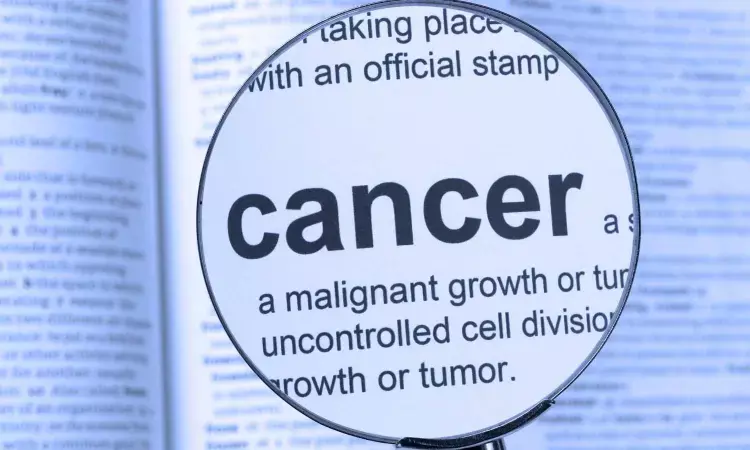- Home
- Medical news & Guidelines
- Anesthesiology
- Cardiology and CTVS
- Critical Care
- Dentistry
- Dermatology
- Diabetes and Endocrinology
- ENT
- Gastroenterology
- Medicine
- Nephrology
- Neurology
- Obstretics-Gynaecology
- Oncology
- Ophthalmology
- Orthopaedics
- Pediatrics-Neonatology
- Psychiatry
- Pulmonology
- Radiology
- Surgery
- Urology
- Laboratory Medicine
- Diet
- Nursing
- Paramedical
- Physiotherapy
- Health news
- Fact Check
- Bone Health Fact Check
- Brain Health Fact Check
- Cancer Related Fact Check
- Child Care Fact Check
- Dental and oral health fact check
- Diabetes and metabolic health fact check
- Diet and Nutrition Fact Check
- Eye and ENT Care Fact Check
- Fitness fact check
- Gut health fact check
- Heart health fact check
- Kidney health fact check
- Medical education fact check
- Men's health fact check
- Respiratory fact check
- Skin and hair care fact check
- Vaccine and Immunization fact check
- Women's health fact check
- AYUSH
- State News
- Andaman and Nicobar Islands
- Andhra Pradesh
- Arunachal Pradesh
- Assam
- Bihar
- Chandigarh
- Chattisgarh
- Dadra and Nagar Haveli
- Daman and Diu
- Delhi
- Goa
- Gujarat
- Haryana
- Himachal Pradesh
- Jammu & Kashmir
- Jharkhand
- Karnataka
- Kerala
- Ladakh
- Lakshadweep
- Madhya Pradesh
- Maharashtra
- Manipur
- Meghalaya
- Mizoram
- Nagaland
- Odisha
- Puducherry
- Punjab
- Rajasthan
- Sikkim
- Tamil Nadu
- Telangana
- Tripura
- Uttar Pradesh
- Uttrakhand
- West Bengal
- Medical Education
- Industry
S.aureus Colonization linked with pathogenesis of Acute radiation dermatitis

New research revealed that in patients with head, neck, and breast cancer staphylococcus aureus nasal colonization was associated with the development of grade 2 or higher acute radiation dermatitis and may also be associated with the pathogenesis of radiation dermatitis. The study results were published in the journal JAMA Oncology.
Acute radiation dermatitis generally begins weeks after radiation therapy and the symptoms include severe skin erythema, dryness, moist or dry desquamation, and/or ulceration, that may interrupt radiotherapy. After radiation therapy, pro-inflammatory cutaneous microorganisms may contribute to cutaneous inflammation. The pathogenesis of acute radiation dermatitis (ARD) remains unknown. Hence researchers conducted a prospective cohort study to evaluate whether nasal colonization with Staphylococcus aureus (SA) before radiation therapy is associated with ARD severity in patients with breast or head and neck cancer.
The study was conducted from July 2017 to May 2018 at an urban academic cancer center with observers blinded to colonization status. Patients aged 18 years or older with breast or head and neck cancer and plans for fractionated radiation therapy (≥15 fractions) with curative intent were enrolled via convenience sampling. The primary outcome was the ARD grade using the Common Terminology Criteria for Adverse Event Reporting, version 4.03.
Key findings:
- Among 76 patients analyzed, the mean (SD) age was 58.5 (12.6) years, and 56 (73.7%) were female.
- Among 76 patients who developed ARD, there were 47 (61.8%) with grade 1, 22 (28.9%) with grade 2 and 7 (9.2%) with grade 3.
- When compared to those who developed grade 1 ARD, the prevalence of baseline nasal SA colonization was higher among patients who developed grade 2 or higher ARD.
Thus, in patients with breast or head and neck cancer, baseline nasal colonization of Staph aureus was linked to the development of grade 2 or higher ARD.
Further reading: Kost Y, Rzepecki AK, Deutsch A, et al. Association of Staphylococcus aureus Colonization With Severity of Acute Radiation Dermatitis in Patients With Breast or Head and Neck Cancer. JAMA Oncol. Published online May 04, 2023. doi:10.1001/jamaoncol.2023.0454
BDS, MDS
Dr.Niharika Harsha B (BDS,MDS) completed her BDS from Govt Dental College, Hyderabad and MDS from Dr.NTR University of health sciences(Now Kaloji Rao University). She has 4 years of private dental practice and worked for 2 years as Consultant Oral Radiologist at a Dental Imaging Centre in Hyderabad. She worked as Research Assistant and scientific writer in the development of Oral Anti cancer screening device with her seniors. She has a deep intriguing wish in writing highly engaging, captivating and informative medical content for a wider audience. She can be contacted at editorial@medicaldialogues.in.
Dr Kamal Kant Kohli-MBBS, DTCD- a chest specialist with more than 30 years of practice and a flair for writing clinical articles, Dr Kamal Kant Kohli joined Medical Dialogues as a Chief Editor of Medical News. Besides writing articles, as an editor, he proofreads and verifies all the medical content published on Medical Dialogues including those coming from journals, studies,medical conferences,guidelines etc. Email: drkohli@medicaldialogues.in. Contact no. 011-43720751



